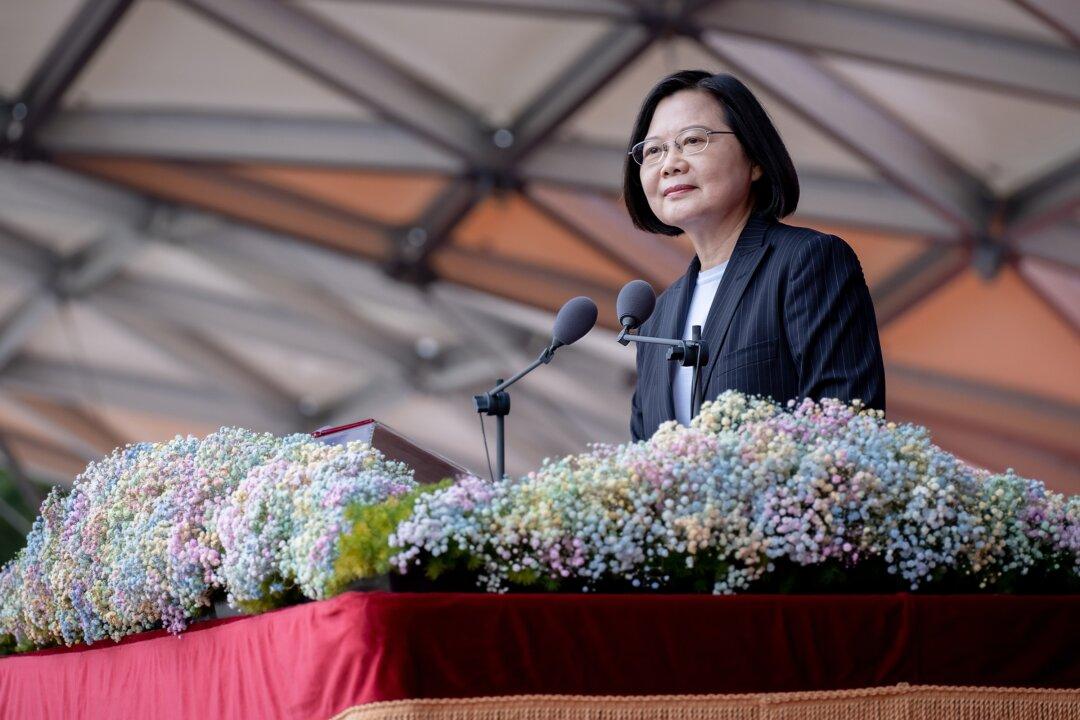TAIPEI, Taiwan—China reacted with hostility after Taiwan President Tsai Ing-wen extended an olive branch for cross-strait talks during her National Day speech on Oct. 10.
Taiwan celebrated its 109th National Day, which marks the start of the Wuchang Uprising in 1911, which overthrew the Qing Dynasty emperor and established the Republic of China (ROC)—which is Taiwan’s official name.





